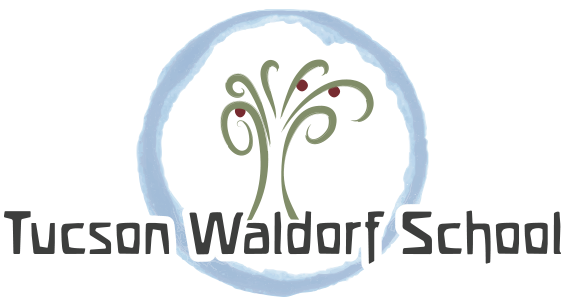As the budding forces in the seventh grade student settle into the glowing flower of grade eight, students in the last year of elementary school sharpen observational skills and test growing critical faculties needed as they move toward the more conceptual reasoning of the adult. The eighth-grade curriculum explores relationships between people, patterns in diverse cultures, and events in relationship to context. Much of the curriculum in this year is focused on the American, French and Industrial revolutions and their influence on world history.
“The depth of engagement in mathematics shown throughout all the grades is evidence that technology in the classroom is not a prerequisite to excellence—rather, it is planting the seeds of innovation.” — Guido Brusa Zappellini, Ph.D. | University of Arizona Department of Astronomy (parent at Tucson Waldorf School)
The Eighth Grade Class Trip celebrates the culmination for the class of the journey through the grades. The trip, often a combination of cultural and outdoor activities, includes adventure, challenge, and social bonding. Trips are designed to build and support each student’s confidence in a structured and supervised setting. In the past, our students have traveled to the Colorado River for a whitewater rafting experience, have hiked and backpacked in the Four Corners Region and California, and have experienced backpacking and sea kayaking in Point Reyes, California.
Main Learning Objectives
Language Arts
The emphasis is on the developmental and discursive reasoning in both speaking and the written word. The Eighth Grade Project, a research paper, and accompanying presentation is prepared and presented to the class and wider school community. A major dramatic production, often a more modern period piece, is performed.
Mathematics
Algebra and geometry continue as the study this year, moving into solid geometry and the Platonic solids.
Science
Studies in physics move to hydraulics, aeromechanics, and electromagnetism. In chemistry, the class studies sugars, starches, proteins, fats, and oils, in relation to the human body. The study includes analysis of the parallels between the uses of these substances in the human body and their uses in industry and commercial production.
History
Students study the American, French and Industrial revolutions, revolutions that illustrate enormous changes in cultural and social thought penetrating all aspects of modern life. Students analyze and track how specific changes in one place influence other realms of society.
Geography
Landforms, ocean currents, atmosphere, climate and ecosystems of the earth are the study of eighth grade. Students explore these topics to understand their connections and influence, the curriculum specifically emphasizing how these interrelated systems affect life and culture through history.
Subject Classes
World Language
Spanish continues with the study of grammar, conversation, and culture.
Practical Arts
Work with hand tools continues in woodworking and in gardening on the farm. In handwork, students undertake a clothing project with the sewing machine.
Music
Choral singing and instrumental ensemble continue to develop in complexity.
Movement Education
Physical activities and strategic games support health in social dynamics, strength in communications skills, and development of organizational thinking.
